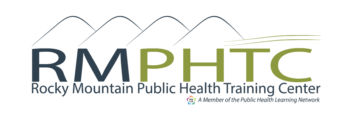Frequently Asked Questions
As Colorado continues it’s reopening strategies, it is vital that Public Health adapts and responds to our ever evolving world. Many questions arise when discussing Contact Tracing. Here we want to provide some answers and clarifications around these efforts to reduce concern, promote transparency, and work towards returning to a normal way of life.
What is “contact tracing”?
“Contact tracing” is a public health practice for controlling the spread of disease by contacting a person who may have been infected to identify other people who may have also been infected. Contact tracing is done by people called “contact tracers” or “case investigators” — the terms are used interchangeably. While protecting people’s privacy, contact tracers provide people with helpful public health information, like how long to isolate in order to avoid spreading the virus to others. Contact tracers then get in contact with other people who may have been exposed, and advise them on what precautions they should take. Contact tracers work hand in glove with navigators who help connect people with resources and services they may need. Learn more about contact tracing from the CDC.
What does a case investigator do?
The COVID-19 Case Investigator will identify all cases in Colorado’s Electronic Disease Reporting System (CEDRS) in their jurisdiction diagnosed with COVID-19. The COVID-19 Case Investigator is responsible for calling people with COVID-19, helping cases make care plans, identifying and collecting contact details of household members and other contacts, and connecting cases and household contacts to various services (including social support structures, testing, clinical care, etc.). The COVID-19 Case Investigator will provide education about isolation and quarantine procedures for cases and household contacts. The Case Investigator will work with their team to ensure data collection is complete and information is shared with appropriate team members.
What does a resource coordinator do?
The COVID-19 Resource Coordinator will serve as a valuable team member with case investigators and contact tracers to support compliance among sick patients in isolation and contacts in quarantine with their resource needs. Their role is to assist community members with accessing current and up-to-date information and resources on community partners providing food, financial assistance, assistance with rent and utilities, documentation needs, and personal protective equipment such as masks.
How does a contact tracer get information about who to call?
Contact tracers get information from people who are diagnosed with COVID-19 and reported to state and local public health departments by laboratories or health care providers. By state statute and regulation, laboratories and health care providers are required to report certain diagnoses and health conditions to public health so public health can interview the cases and put measures in place to control the spread of disease — COVID-19 is one of these.
Contact tracers get information from people who are diagnosed with COVID-19 and reported to state and local public health departments by laboratories or health care providers. By state statute and regulation, laboratories and health care providers are required to report certain diagnoses and health conditions to public health so public health can interview the cases and put measures in place to control the spread of disease — COVID-19 is one of these.
Is my information safe?
Public health organizations are responsible for protecting the health information of Colorado citizens. All personal health information is carefully safeguarded. Your protected health information is secure and is only shared with public health officials and individuals who need that information to prevent the spread of COVID-19. Contacts are only informed that they may have been exposed to a patient with the infection. They are not told the identity of the patient who may have exposed them.
Public health organizations are responsible for protecting the health information of Colorado citizens. All personal health information is carefully safeguarded. Your protected health information is secure and is only shared with public health officials and individuals who need that information to prevent the spread of COVID-19. Contacts are only informed that they may have been exposed to a patient with the infection. They are not told the identity of the patient who may have exposed them.
Who does contact tracing?
In Colorado, local public health agencies lead contact tracing efforts in their communities. The state supports local agencies in their efforts, and may call individuals on behalf of local agencies in some circumstances. The state provides coordination of the data and technical assistance as needed.
In Colorado, local public health agencies lead contact tracing efforts in their communities. The state supports local agencies in their efforts, and may call individuals on behalf of local agencies in some circumstances. The state provides coordination of the data and technical assistance as needed.
What is the difference between a contact tracer and a COVID-19 navigator?
Contact tracers reach out to and interview patients with confirmed COVID-19 cases and their contacts.COVID-19 navigators provide support services to people who have tested positive and may be in isolation or quarantine. Navigators make sure that patients have the knowledge and support they need to successfully complete their isolation and quarantine periods.
Contact tracers reach out to and interview patients with confirmed COVID-19 cases and their contacts.COVID-19 navigators provide support services to people who have tested positive and may be in isolation or quarantine. Navigators make sure that patients have the knowledge and support they need to successfully complete their isolation and quarantine periods.
Colorado Public Health Workforce Collaborative










